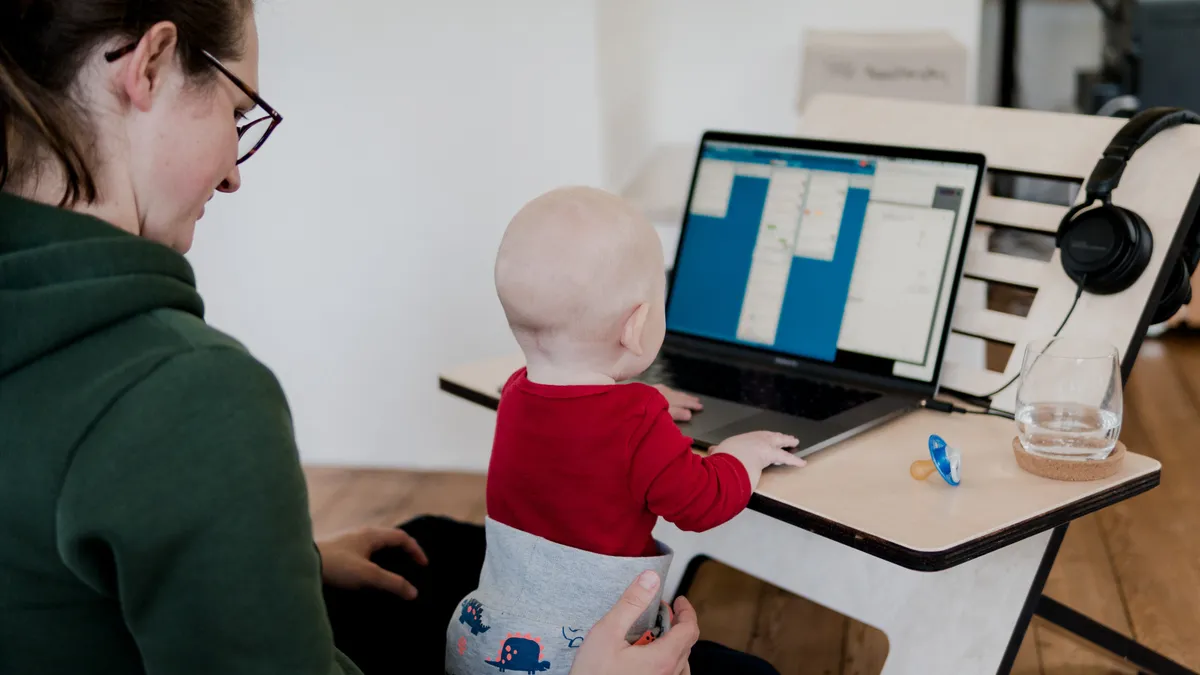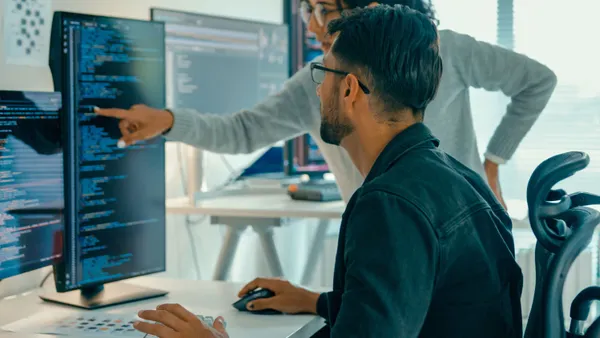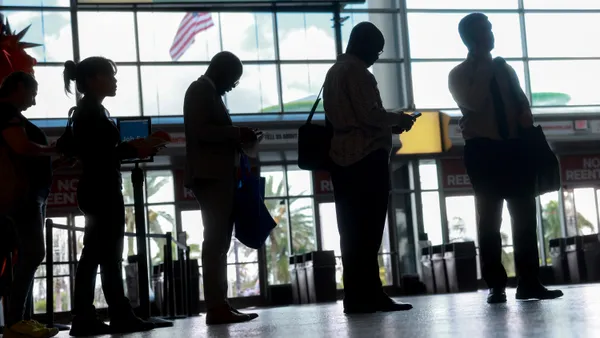Dive Brief:
- Working parents are losing significant time during work hours, experiencing increased stress, and making adjustments to their schedules, with women shouldering a larger responsibility for caregiving, according to a study on the state of working parents by Cleo, published Sept. 24.
- Women lose 49% more time than men and 61% of women said they feel responsible for the majority of caregiving in their partnership, compared to 26% of men, according to the report. Additionally, 39% of working parents said they’ve had to make adjustments to their hours, with women 15% more likely to do so. Cleo said one in four survey respondents had a child with specialized health needs.
- One in four respondents also said they are looking for a new job to “better accommodate their dual role.” As of September, 34% of families said they are still without childcare coverage, 42% reported having partial coverage or recently finding a childcare solution and 21% have had childcare throughout.
Dive Insight:
Working parents were strained before the pandemic, according to research from the Pew Research Center, and that strain has been worsened by school closures and hybrid or remote schooling for young children. As a result, many people — mostly women, according to the National Women’s Law Center — are leaving the workforce, looking for more accommodating jobs, or reducing their work hours, as the Cleo survey results indicated.
In a recent Unum survey of employers, 78% of respondents said the return to school would be somewhat or very challenging for their organizations. Employers’ top concerns were employee productivity, increased leave requests and shifting work responsibilities around. Fifty-seven percent of respondents said they have made accommodations for employees.
Employers have implemented flexible work policies, childcare reimbursement and extra time off, hoping to improve conditions for working parents. Some say they believe these conditions are causing the "motherhood penalty" to be even more severe for individual careers than before.













